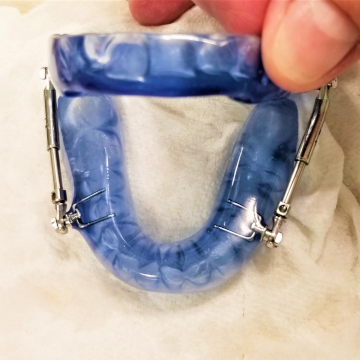 Santa Cruz, Scotts Valley CA
Santa Cruz, Scotts Valley CA
Have you noticed a clicking or popping sound when you open or close your jaw? While it might seem harmless, jaw popping can be an early sign of temporomandibular joint disorder (TMJD). Many people overlook this symptom, thinking it’s nothing to worry about—until discomfort or pain sets in. At Ebrahimian Integrative Dentistry, we want you to know that addressing these early warning signs now can help you avoid more serious issues down the line.
If you’re experiencing jaw popping, stiffness, or discomfort, it may indicate underlying joint misalignment or dysfunction. Seeking expert evaluation and care at this stage can prevent the progression to chronic pain, inflammation, or even joint degeneration.
Common Signs of TMJD You Shouldn’t Ignore
TMJ disorder (TMJD) can show up in more ways than most people realize. One of the most noticeable signs is a clicking or popping sound in the jaw joint. This typically happens when the disc that cushions the joint becomes displaced, either due to ligament damage or stress on the jaw.
As the jaw moves, the disc may shift back into place with a “pop,” then slip out again when closing, sometimes causing discomfort or additional sounds. In advanced cases, if the disc is severely damaged or missing, the bones in the joint may grind together—a condition known as crepitus. This grinding indicates joint degeneration, which can eventually cause chronic pain, inflammation, and limited jaw function.
Ignoring these symptoms can allow the condition to worsen, leading to more complex problems such as osteoarthritis in the jaw, frequent headaches, and difficulty speaking or chewing.
What Does Jaw Popping Actually Mean?
If your jaw pops but doesn’t hurt—yet—you may be tempted to ignore it. However, popping is often a sign of misalignment between the upper and lower jaw. It’s not just a harmless sound; it can be the result of a condition known as Cranio Cervical Mandibular Dysfunction (CCMD). This dysfunction affects not just the jaw, but also the head, neck, and spine, and can lead to a wide range of symptoms if not addressed.
Unfortunately, many general dentists may downplay these signs unless there’s significant pain involved. You may be told to “watch it” or try a night guard, but this passive approach doesn’t get to the root of the problem. Most dental schools don’t provide extensive training in treating jaw joint disorders, so unless you’re seeing a provider with specialized expertise, effective solutions might be out of reach.
At Ebrahimian Integrative Dentistry, we take a comprehensive and proactive approach to diagnosing and treating TMJ dysfunction. We understand that early intervention can prevent the need for more invasive treatments, such as jaw surgery or long-term medication use.
Why Early TMJ Treatment Matters
Jaw popping is often a precursor to more serious joint damage, not just a benign annoyance. Over time, what begins as an occasional noise can progress to joint degeneration, chronic tension headaches, neck pain, and even sleep disturbances. Delaying treatment can lead to more complex and expensive care, including invasive procedures.
Our team focuses on identifying and correcting the root causes of TMJ dysfunction—not just masking the symptoms. Through advanced diagnostics and non-invasive treatment strategies, we help you find lasting relief and restore natural, healthy jaw function.
Start Protecting Your Jaw Health Today
If you’re experiencing jaw popping, clicking, or discomfort in Scotts Valley, CA, don’t wait until it becomes painful or chronic. At Ebrahimian Integrative Dentistry, we specialize in diagnosing and treating TMJ disorders with a whole-body, integrative approach. We offer personalized care that targets the source of the issue for long-term relief.
📞 Call (831) 438-4411 to schedule your consultation and take the first step toward understanding your symptoms and protecting your long-term oral and joint health.


